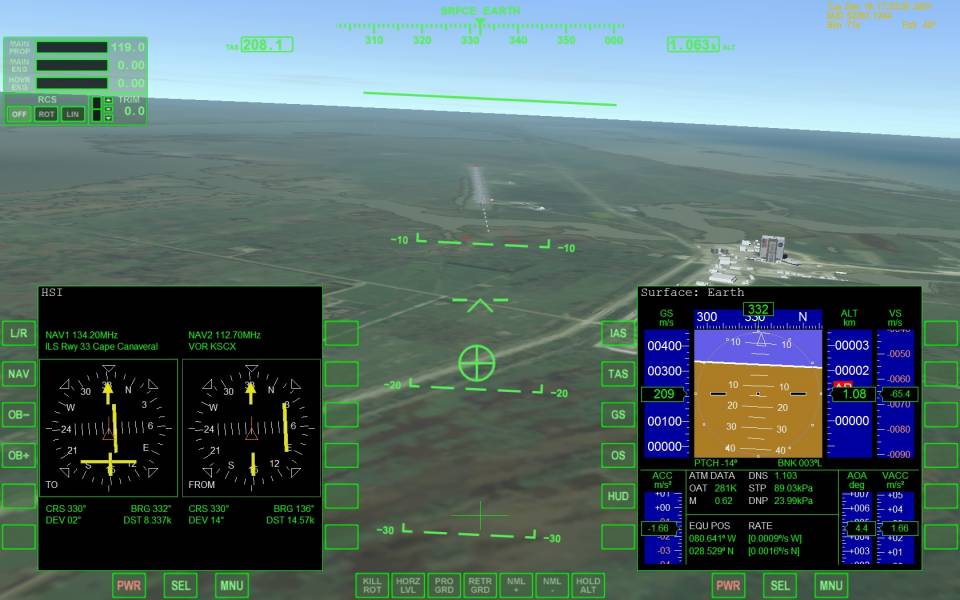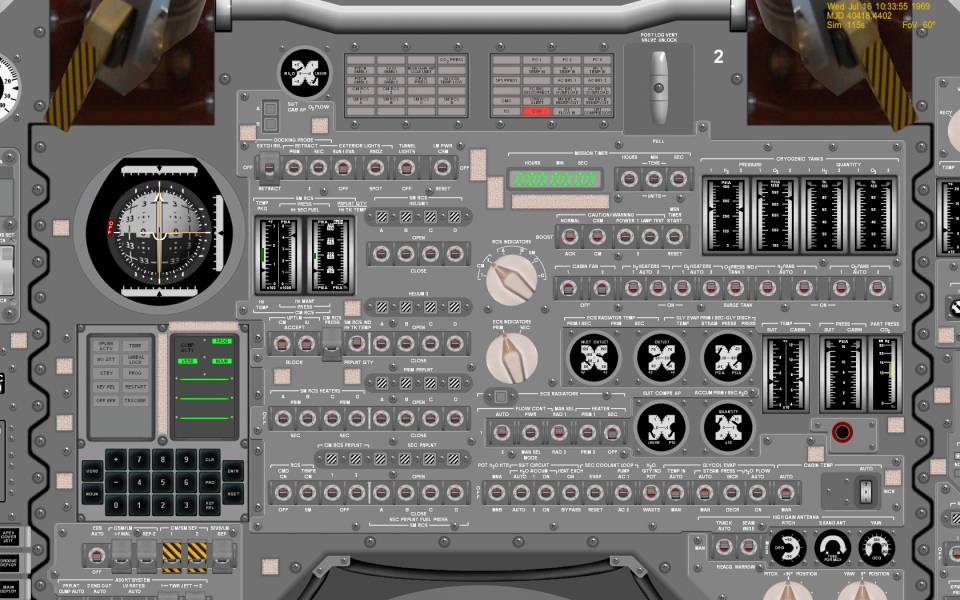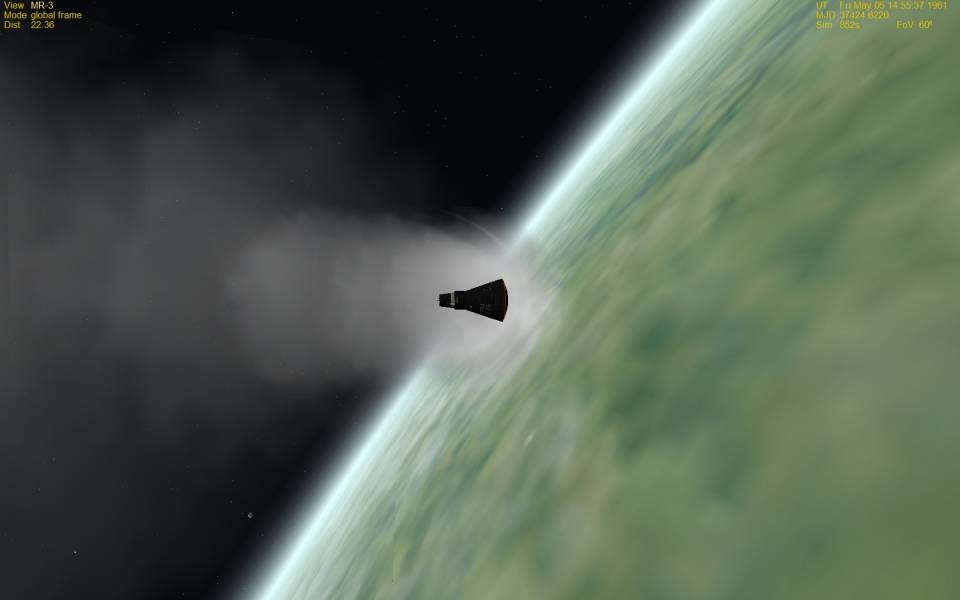All this talk about flight sims and flight sticks and related paraphernalia around the site has gotten me into flight sims again. I dusted off the stick and played some DCS A-10C and went back to IL-2, while peppering in something a bit more casual with Microsoft Flight.
I’m not here to talk about boring atmospheric flight simulators though. While going through my Flight Sim revival, I rediscovered Orbiter, a great little spaceflight simulator. Developed by a single person, it has become, over the years, the standard for spaceflight simulation. As soon as you download the sim, you can fly the Space Shuttle Atlantis, or a selection of other made-up ships. The default ships it comes with are built in a very basic way as to make their operation straightforward for anyone who might pick it up, providing extensive autopilot features that flip all the switches for you. In fact, the default space shuttle doesn’t even include a virtual cockpit. These standard ships let you play around in the sandbox without really investing much time or effort.

The simulation as it comes in the default package, while fun, is rather lacking. There is no sound, and the lack of realistic control mechanisms for the ships leaves a gaping hole in what is an otherwise near-perfect simulation of spacecraft and zero-g physics. Just about the only extra features included by default are Flight Stick/TrackIR support. Thankfully, the mod community has made up for the standard install’s flaws, and dramatically improved the function of just about everything. The most popular mod of the bunch, OrbiterSound, adds sound to the game, with everything from engine noise to radio chatter. This mod has become so synonymous with Orbiter that most other mods will include additional sound packages for it. Teams of people have developed advanced and highly realistic sims for Project Mercury, Gemini, and Apollo, all with fully functioning virtual cockpits, which you can navigate your way through with full-length checklists, flight procedure manuals, and familiarization guides, all provided by the mod developers The Apollo mod stands above and beyond the others as a perfect example of how to build a new ship for Orbiter. The sound effects and radio chatter are taken directly from era-appropriate sources, the models and virtual cockpits look amazing, and outside the sim, the mod comes with massive amounts of documentation, which alongside a fully fleshed out wiki, gives you everything you need to be able to fly a successful mission.

Of course, along with a thriving mod community comes a slew of unusual problems. Budding space enthusiasts will quickly discover that they have to install both the 2006 and the 2010 versions of Orbiter if they want to be able to run all the mods available, as many of them, including the Project Mercury mod, require an older version of the core software. Even mods that do support the “new” 2010 version of Orbiter, like Project Apollo, don’t run as well as the older 2006 version of the same mods. At the end of the day, most people still run the older, inferior 2006 version, which has far more mod support. However, if you’re willing to deal with weird technical problems though, there’s a really great experience to be had here, a little different from the standard sim fare, but very interesting nevertheless.

I might write up a more detailed post about my experiences soon, but I’ve really been enjoying my time with this, and with the renewed enthusiasm about sims floating around the site, thought I’d bring it up.
Log in to comment